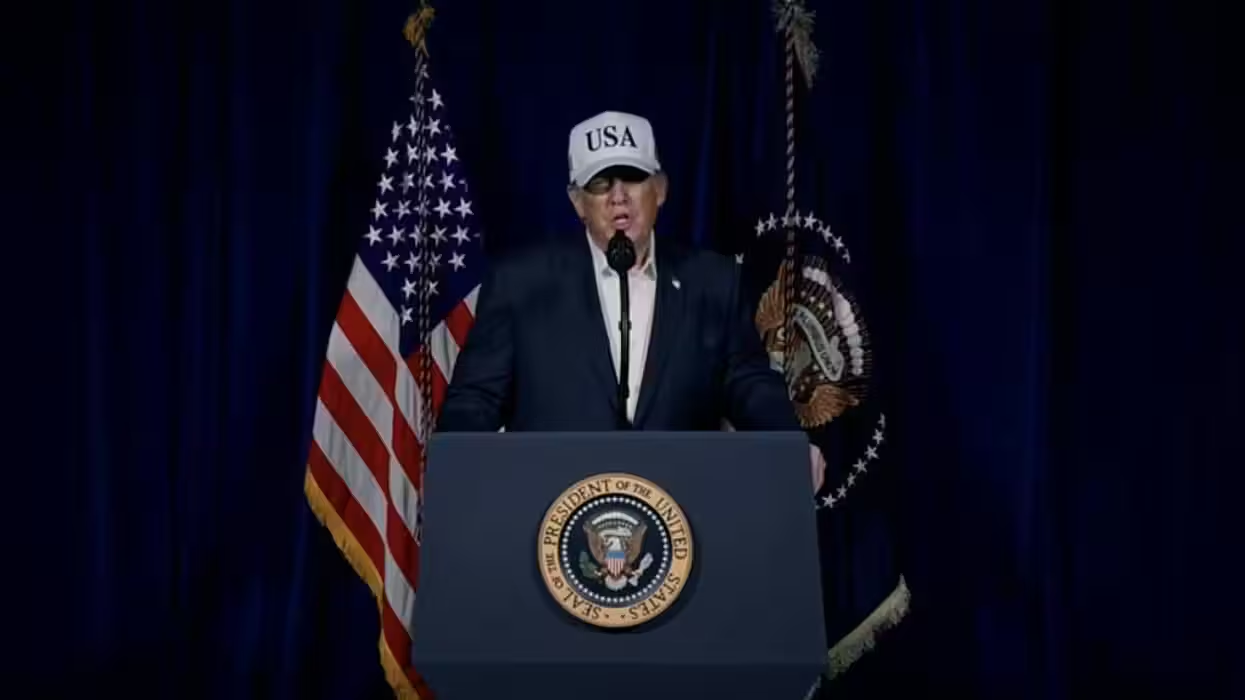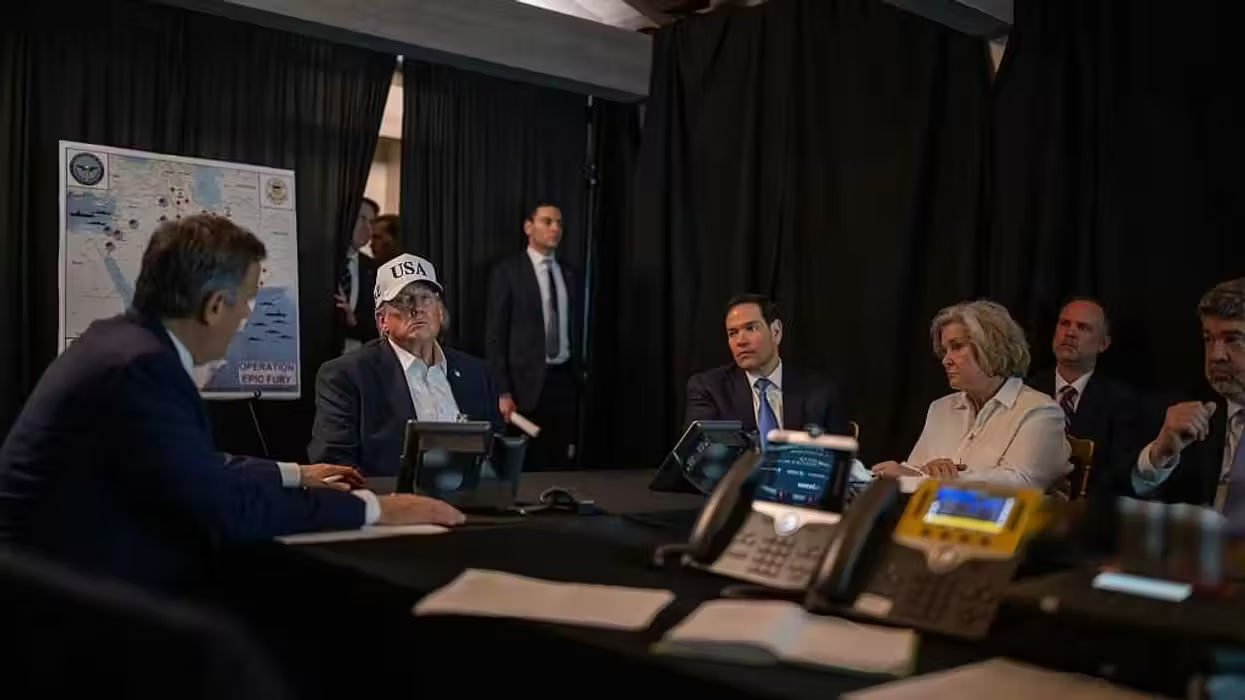
© 2026 Blaze Media LLC. All rights reserved.
GM's OnStar Patent Suggests Technology to Tailor Billboards to You 'Minority Report' Style
May 15, 2012
“We were surprised that anyone noticed it."

You're probably already familiar with the fact that data tracking of your online movements allows for ads to be specifically targeted to your preferences. Now, OnStar wants to bring this concept roadside.
Jalopnik, an automotive blog, reported late in April that it had uncovered a patent filed by General Motors in 2010 that would create targeted billboard ads based on where you were traveling. Jalopnik draws the comparison to technology featured in the 2002 film "Minority Report:"
In Minority Report, Tom Cruise was served up individually-targeted ads. Now it appears General Motors wants to make this futuristic science fiction technology a reality with a just-published patent for billboards designed to serve up ads targeting a specific car based on their last navigational system input.[...]
Here, it appears that GM (and its OnStar service) isn't allowed to — thanks to Onstar's own Terms of Service — use anything other than the destination you just input into your vehicle (along with external, randomized databases such as a seasonal driving pattern calendar based on all American drivers and information on the destination itself and why someone might be driving there) to serve up an ad. That data, we're told, is then deleted from the ad server and only an anonymized record that an OnStar user (no tracking of which OnStar user) made a request for that destination point is left on OnStar's servers.
Wired has some interesting ideas of what these ads could look like:
Perusing the patent’s text, nightmare scenarios flooded our thoughts. Kids in the backseat? Be prepared to see ads for Happy Meals and nearby amusement parks. Headed to the doctor’s office? A friendly reminder to schedule a colonoscopy, in flashing 40-foot letters.
Aside from just tracking location data, Wired also writes "most alarming" is the fact that the patent includes use of cameras pointed into the vehicle that could be used to understand the demographics of who is in the vehicle. Wired also speculates someday the position of the seat could be used to help determine age of the driver.
Wired notes that like many companies filing patents, this doesn't mean the idea will come to fruition any time soon -- or at all:
“It doesn’t mean we’re ever going to do something about it, and we don’t have any plans to ever leverage it in the near future or at all,” said Nick Pudar, OnStar’s vice president of business development. “We were surprised that anyone noticed it,” Pudar admitted.
Wired also contacted privacy expert Dorothy Glancy, a Santa Clara Law professor, who said thousands of patents for targeted advertising have been filed, including some that use "vehicle telematics." Combining telematics and advertising goes beyond what most would expect of their OnStar service, Glancy said. Should the idea ever be implemented, she thinks people should be at least told their location-based information was being sold, if not given the opportunity to opt-out. Pudar seconded the importance of this sentiment, telling Wired that use of personal data in this way would require an opt-in from users.
Watch this clip from "Minority Report" if you want to see an example of futuristic ads targeted to user preferences:
Want to leave a tip?
We answer to you. Help keep our content free of advertisers and big tech censorship by leaving a tip today.
Want to join the conversation?
Already a subscriber?
more stories
Sign up for the Blaze newsletter
By signing up, you agree to our Privacy Policy and Terms of Use, and agree to receive content that may sometimes include advertisements. You may opt out at any time.
Related Content
© 2026 Blaze Media LLC. All rights reserved.
Get the stories that matter most delivered directly to your inbox.
By signing up, you agree to our Privacy Policy and Terms of Use, and agree to receive content that may sometimes include advertisements. You may opt out at any time.






